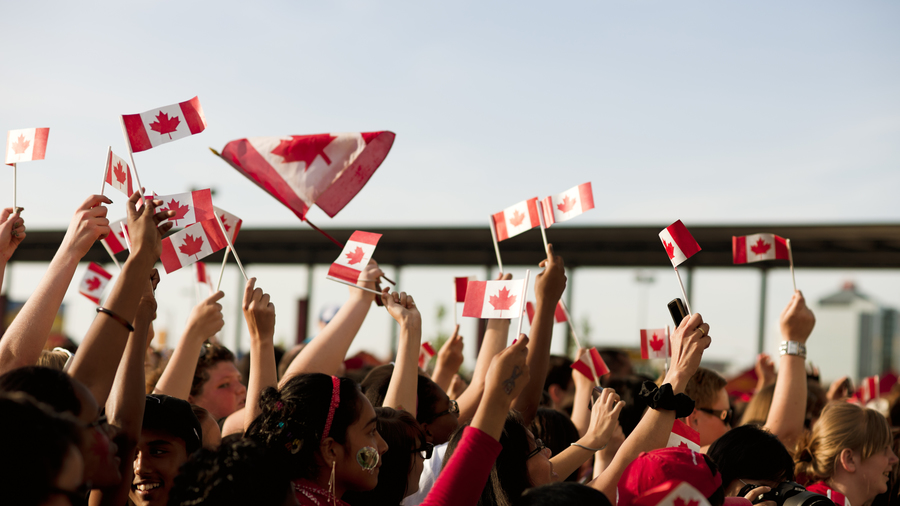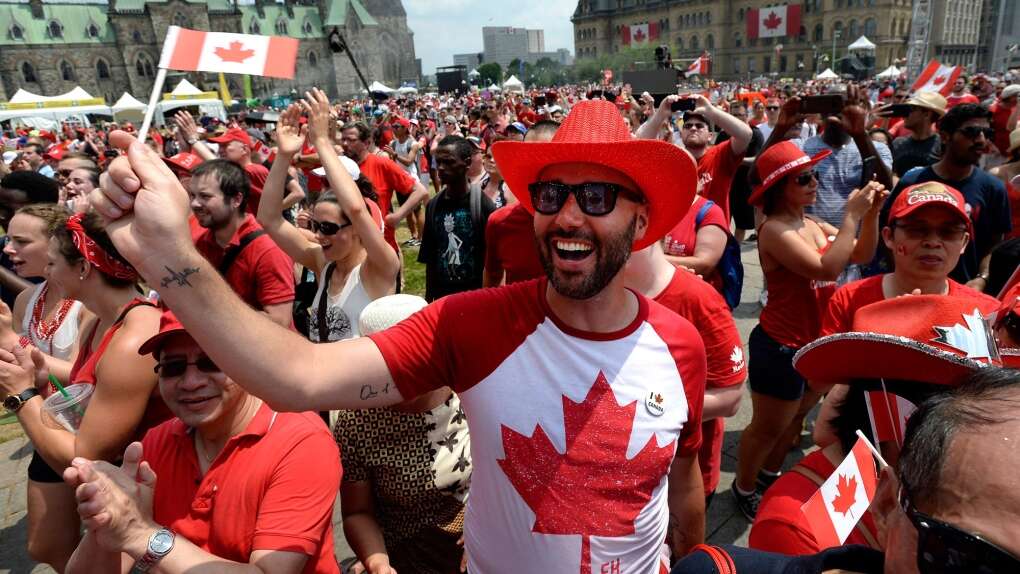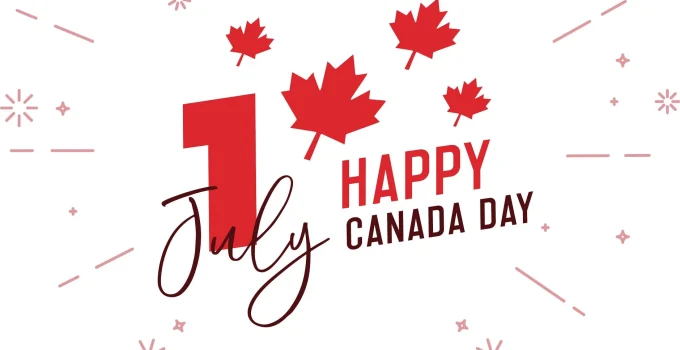Canada Day, celebrated on July 1st, marks the anniversary of the confederation of Canada. It is a day of national pride and joy, commemorating the birth of a nation known for its vast landscapes, cultural diversity, and strong democratic values. This article delves into the history, significance, and contemporary celebrations of Canada Day, highlighting how it serves as a reflection of the country’s unity and heritage.
Contents
Historical Background Canada Day

Canada Day traces its origins to July 1, 1867, when the British North America Act (now known as the Constitution Act, 1867) came into effect. This act united three British colonies—New Brunswick, Nova Scotia, and the Province of Canada (which later split into Ontario and Quebec)—into a single dominion within the British Empire called Canada. This confederation marked the beginning of Canada’s journey toward full sovereignty.
Initially known as Dominion Day, the holiday commemorated the formation of the Dominion of Canada. However, the name was changed to Canada Day in 1982, following the passage of the Canada Act, which patriated the Canadian Constitution, ending the need for legislative approval from the British Parliament for constitutional amendments. This change reflected Canada’s growing national identity and independence.
Significance of Canada Day
Canada Day is a symbol of unity and pride for Canadians, celebrating the nation’s rich history, cultural diversity, and achievements. It is a time to reflect on the values that define Canada—peace, democracy, inclusivity, and respect for human rights.
- Cultural Diversity: Canada is known for its multicultural society, welcoming immigrants from around the world and fostering a culture of inclusivity and tolerance. Canada Day celebrates this diversity, highlighting the contributions of various cultural communities to the nation’s fabric.
- National Unity: The day serves as a reminder of the unity that underpins Canada’s federal system. Despite regional differences and challenges, Canada Day promotes a sense of belonging and solidarity among Canadians from coast to coast.
- Heritage and History: Canada Day provides an opportunity to honor the country’s heritage and the milestones in its journey towards becoming a fully independent nation. It is a day to remember the historical events and figures that have shaped Canada’s path.
Celebrations Across the Country

Canada Day is celebrated with enthusiasm and patriotism across the country. From large urban centers to small rural communities, Canadians come together to participate in a variety of festivities and activities.
- Parades and Fireworks: Parades featuring floats, marching bands, and cultural performances are a staple of Canada Day celebrations. As the evening falls, spectacular fireworks light up the sky in major cities such as Ottawa, Toronto, Vancouver, and Montreal, creating a festive atmosphere.
- Cultural Festivals: Many communities organize cultural festivals showcasing music, dance, art, and cuisine from different parts of the world. These festivals highlight the multicultural essence of Canada and offer a platform for cultural exchange and celebration.
- Public Ceremonies: Official ceremonies, including flag-raising events and the singing of the national anthem, are held to honor the country’s heritage. In Ottawa, the capital city, the Governor General and other dignitaries participate in ceremonies on Parliament Hill, which are broadcast nationwide.
- Community Gatherings: Local parks and community centers host picnics, barbecues, and sports events where families and friends gather to celebrate. These gatherings foster community spirit and provide an opportunity for socializing and enjoying the outdoors.
- Indigenous Celebrations: Indigenous communities across Canada celebrate their unique cultures and histories on Canada Day. Events include traditional ceremonies, storytelling, drumming, and dances that honor the rich heritage and contributions of Indigenous peoples to the nation.
Reflecting on Reconciliation
In recent years, Canada Day has also become a time for reflection on the country’s relationship with Indigenous peoples and the ongoing journey towards reconciliation. The legacy of colonialism, including the injustices faced by Indigenous communities, is a crucial part of Canada’s history that requires acknowledgment and action.
- Truth and Reconciliation: The Truth and Reconciliation Commission (TRC), established in 2008, has highlighted the need for reconciliation between Indigenous and non-Indigenous Canadians. The TRC’s calls to action emphasize the importance of addressing historical wrongs and building a future based on mutual respect and understanding.
- Acknowledging History: On Canada Day, many Canadians take the time to learn about and acknowledge the history and cultures of Indigenous peoples. Educational events, exhibits, and discussions about the impact of residential schools and other policies of assimilation are part of this process.
- Building Partnerships: Canada Day also highlights efforts to build stronger partnerships between Indigenous and non-Indigenous communities. Collaborative projects and initiatives aimed wdbos login alternatif at improving education, health, and economic opportunities for Indigenous peoples are celebrated and promoted.
Contemporary Challenges and Celebrations

Canada Day 2024, like any national celebration, is set against the backdrop of contemporary issues and challenges that the country faces. These include environmental concerns, economic disparities, and social justice issues. The day offers a moment to reflect on these challenges and renew commitments to addressing them.
- Environmental Stewardship: Canada’s vast natural landscapes are a source of national pride, but they also come with the responsibility of environmental stewardship. Canada Day is a reminder of the need to protect the environment and promote sustainable practices for future generations.
- Economic Inclusion: Economic disparities remain a significant issue in Canada. Celebrations often include discussions and initiatives aimed at promoting economic inclusion and ensuring that all Canadians have access to opportunities and resources.
- Social Justice: Issues of social justice, including gender equality, racial equality, and LGBTQ+ rights, are integral to the ongoing development of Canadian society. Canada Day events and activities often include a focus on promoting social justice and human rights.
The Spirit of Canada Day
At its core, Canada Day embodies the spirit of celebration, reflection, and aspiration. It is a day when Canadians come together to celebrate their shared values and express pride in their country. It is also a time to reflect on the nation’s history, recognize the contributions of all communities, and commit to building a better future.
- Pride and Patriotism: Canada Day fosters a sense of pride and patriotism, with Canadians proudly displaying the national flag and wearing red and white. The celebration of national achievements and milestones strengthens the sense of national identity.
- Community and Connection: The day emphasizes the importance of community and connection. Whether through public events or private gatherings, Canada Day brings people together, reinforcing the bonds that hold the nation together.
- Hope and Progress: Canada Day is also about hope and progress. It is an opportunity to look forward, envisioning a future where Canada continues to grow and thrive, addressing challenges and embracing opportunities with resilience and unity.
Conclusion
Canada Day is a multifaceted celebration that reflects the rich tapestry of Canadian society. It honors the country’s history, celebrates its diversity, and looks forward to a future of unity, progress, and reconciliation. As Canadians gather on July 1st, they do so with a sense of pride in their nation’s achievements and a commitment to building a better, more inclusive, and sustainable future for all.
Read More Article About “Julio Iglesias: The Timeless Voice of Romance and Passion“




